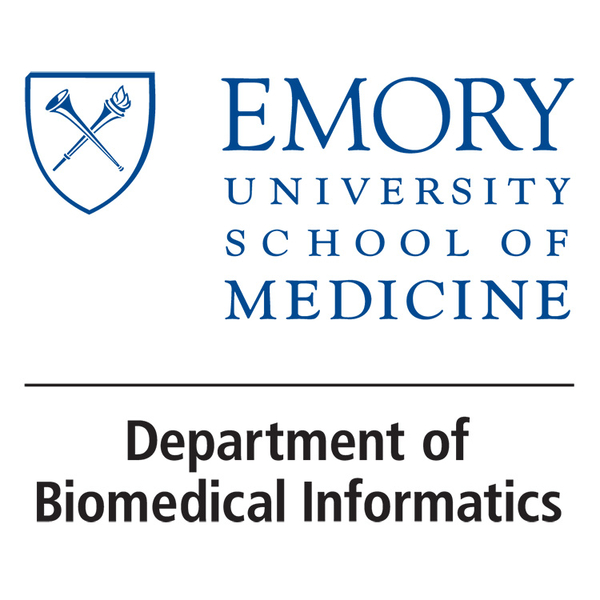The Department of Biomedical Informatics (BMI) participates in the Computer Science and Informatics (CSI) graduate program, which includes faculty from BMI, the Department of Biostatistics and Bioinformatics (BIOS), and the Department of Computer Science (CS), providing an interdisciplinary approach to informatics and artificial intelligence research for health and healthcare. As part of the Laney Graduate School at Emory University, the CSI graduate program focuses on emerging, interdisciplinary areas of computing research building on Emory’s traditional strengths in medicine, life sciences, and social and behavioral sciences.
The BMI concentration focuses on the effective use of biomedical data, information, and knowledge for biomedical and clinical research, as well as decision support driven by efforts to improve human health. This focus pushes the boundaries at the intersection of data science and integrative biomedical research to advance healthcare and serves as a catalyst for creative, multidisciplinary projects in data science and integrative biomedical research. Our faculty’s work ranges from imaging and neuroscience to applied machine learning and mHealth.
Our grant sources include federal institutes like the NIH and NSF, foundations, and industry giants like Google, Amazon and Microsoft. Specific focus areas include but are not limited to AI, machine learning (theory and applications), natural language processing and generative AI, bias, ethics and fairness in AI, biomedical signal and image processing, computer vision, edge computing, high performance computing, biostatistics and bioinformatics, and human-computer interaction.
Graduate study is comprised of four required and three elective courses, two rotation projects with prospective faculty advisors, and teacher and ethics training. Program requirements help students transition from coursework to research throughout the course of the program.
Graduates will develop advanced computational techniques and strategies that can directly impact patient care. Graduates find careers in teaching and research facilities of educational and medical institutions, industry and hospitals, and law and government regulatory agencies.
